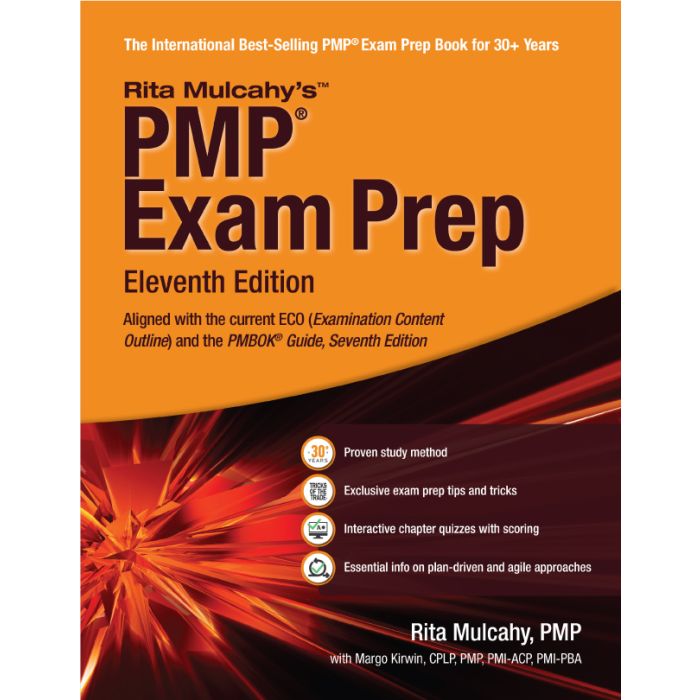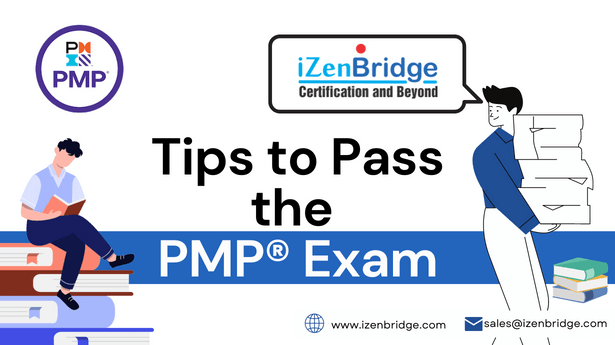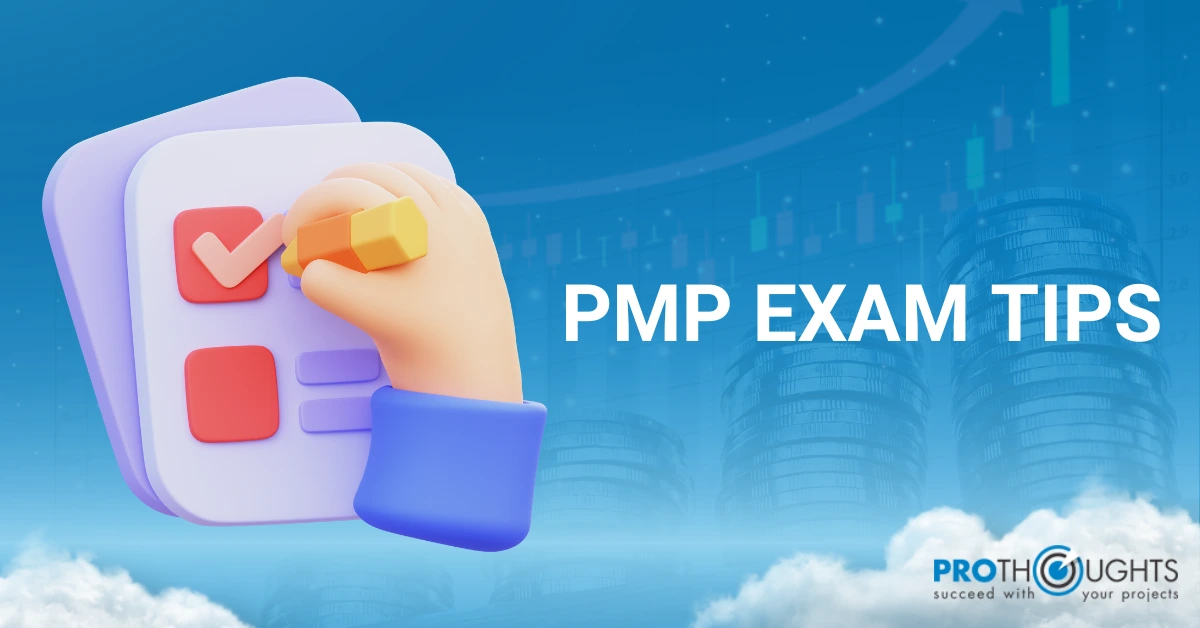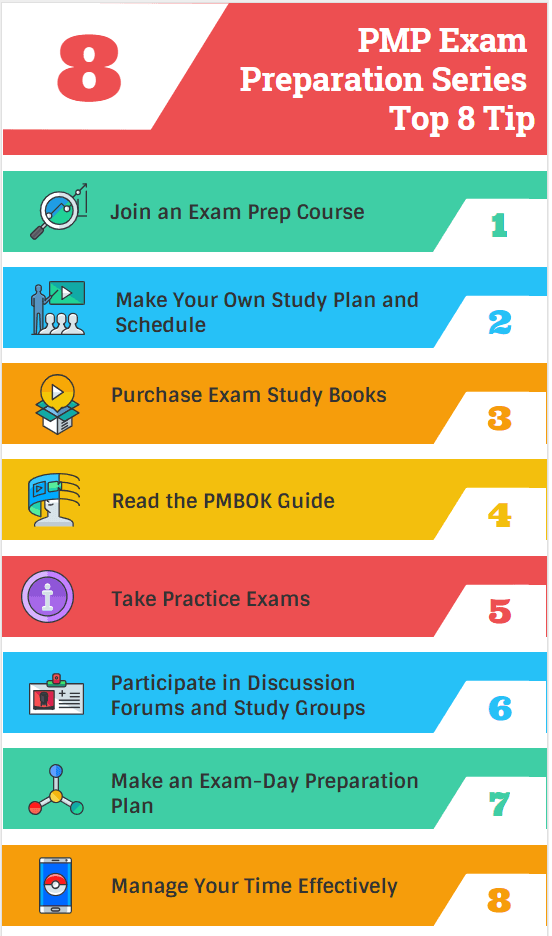Preparing for the PMP exam can feel like you’re climbing a mountain, and you might be wondering where to start or how to make the most of your study time. You’re not alone in this journey.
Many have faced the same challenges and emerged victorious by using the right strategies. You can too! Imagine the relief and satisfaction you’ll experience when you finally hold that PMP certification. It’s not just about passing an exam; it’s about unlocking new career opportunities and gaining recognition in your field. But how do you get there efficiently and effectively? In this blog, we’re diving into actionable PMP exam tips that are designed to boost your confidence and enhance your preparation. From time management techniques to understanding the exam format, we’ve got you covered. And for those who prefer a structured guide, consider checking out the PMP Exam Prep Simplified PDF Book. This resource is crafted to streamline your study process and help you focus on what truly matters. Stick with us as we explore these tips, and by the end of this article, you’ll be equipped with insights that can make all the difference. Ready to conquer the PMP exam? Let’s get started!

Credit: store.rmcls.com
Introduction To Pmp Exam
The PMP Exam is crucial for professionals in project management. It validates your skills and enhances your career prospects. Achieving this certification can be a game-changer for your professional journey.
Understanding The Importance Of Pmp Certification
PMP Certification is recognized globally and offers numerous benefits. It showcases your ability to lead and manage projects effectively. Many organizations prefer certified individuals for project management roles. This certification can increase your salary potential and open doors to new opportunities.
Overview Of The Exam Structure And Content
The PMP Exam consists of multiple-choice questions. It covers five domains of project management:
- Initiating
- Planning
- Executing
- Monitoring and Controlling
- Closing
Each domain tests your knowledge and skills in different aspects of project management. Understanding the PMBOK Guide is essential for passing the exam.
| Domain | Percentage of Questions |
|---|---|
| Initiating | 13% |
| Planning | 24% |
| Executing | 31% |
| Monitoring and Controlling | 25% |
| Closing | 7% |
Preparing for the PMP Exam requires dedication and strategic planning. Consider using resources like PMP Exam Prep Simplified for comprehensive study material.

Credit: www.izenbridge.com
Key Features Of The Pmp Exam
The PMP Exam is a critical step for professionals in project management. It evaluates your understanding and application of project management principles. Success requires a deep grasp of its key features. Understanding these features can shape your preparation strategy. Let’s explore some essential aspects of the PMP Exam.
Exam Domains And Knowledge Areas
The PMP Exam is structured around specific exam domains and knowledge areas. These domains are:
- People: Focuses on leading and managing project teams.
- Process: Involves the technical aspects of project management.
- Business Environment: Ensures projects align with organizational strategy.
Each domain covers various knowledge areas. These areas encompass project integration, scope, schedule, cost, quality, resource, communication, risk, procurement, and stakeholder management. Understanding these domains and areas is key to your exam success.
The Role Of Experience And Education In Preparation
Experience plays a crucial role in PMP Exam preparation. Having hands-on practice in managing projects is invaluable. It helps in relating real-world scenarios to exam questions. Consider documenting your project experiences as they can aid in understanding exam concepts.
Education is equally important. PMP aspirants must meet specific educational requirements. Typically, you need a four-year degree and 35 hours of project management education. Courses designed for PMP preparation can enhance your knowledge. They focus on the exam’s syllabus and provide structured learning paths.
Balancing experience with education provides a comprehensive preparation strategy. It ensures you are well-rounded and ready for the challenges of the PMP Exam.
Effective Study Strategies For Pmp Success
The PMP exam is a crucial step for aspiring project managers. Achieving success requires strategic planning and efficient use of resources. This section offers insights into study strategies that can help you excel.
Creating A Comprehensive Study Plan
Start with a clear study plan. Break down the syllabus into manageable sections. Allocate specific time slots for each topic. Use a calendar to track your progress. Consistency is key. Dedicate regular hours each day for study.
- Identify your strengths and weaknesses.
- Focus more on areas that need improvement.
- Set realistic study goals for each week.
Consider using a study planner app. It can help organize your schedule and send reminders. Adjust your plan based on your progress and upcoming exam date.
Utilizing Pmp Study Resources Effectively
Choose the right PMP study resources. This can make a difference in your preparation. Explore various formats such as PDF books, online courses, and practice tests.
Here’s a quick guide on utilizing resources:
| Resource Type | Benefits |
|---|---|
| PDF Books | Portable and easy to access. Allows for note-taking and highlighting. |
| Online Courses | Interactive and engaging. Offers a comprehensive understanding of topics. |
| Practice Tests | Helps assess your knowledge. Provides real exam simulation. |
For example, consider PMP Exam Prep Simplified. It’s a PDF book that can guide your study process. Use it to reinforce your understanding of complex topics.
- Read and summarize key points.
- Take notes on important concepts.
- Review regularly to reinforce memory.
Efficient resource utilization can enhance your preparation significantly. Ensure you choose materials that align with your learning style.
Time Management Techniques For Exam Preparation
Preparing for the PMP exam requires effective time management. Balancing study, work, and life can be challenging. Implementing smart techniques can boost your efficiency. With proper planning, you can optimize your study efforts and enhance learning.
Balancing Study Time With Work And Personal Life
Achieving a balance between study and everyday life is crucial. Create a study schedule that fits into your daily routine. Consider these tips:
- Set fixed study hours that do not conflict with work.
- Include short breaks to maintain focus.
- Engage in leisure activities to refresh your mind.
Use a calendar app to remind you of study sessions. This helps in maintaining consistency without overwhelming yourself.
Prioritizing Study Tasks For Maximum Efficiency
Prioritization is key to effective study. Focus on tasks that yield the highest benefits. Here’s how:
- Identify high-yield topics that are frequently tested.
- Break complex subjects into smaller parts.
- Allocate more time to challenging concepts.
Create a checklist to track your progress. This keeps you motivated and ensures you cover all topics.
Implementing these techniques can lead to a more structured study approach. Efficient time management enhances your readiness for the PMP exam.
Test-taking Strategies For The Pmp Exam
The PMP Exam is a crucial step for project management professionals. Effective test-taking strategies can significantly improve your chances of success. Being familiar with the exam format and knowing how to manage time are essential skills. This section explores key strategies that will help you navigate the PMP Exam confidently.
Approaching Multiple-choice Questions
Multiple-choice questions can be tricky. Focus on understanding the question first. Read each question slowly to grasp the context. Eliminate clearly wrong answers. This strategy narrows down choices and increases the odds of selecting the correct answer. Pay attention to keywords like “most,” “least,” “best,” which can change the meaning drastically.
Use the process of elimination. Cross out options that are incorrect immediately. This technique helps focus on remaining choices. If unsure, make an educated guess. Review questions if time allows. Sometimes, earlier questions provide clues for later ones.
Handling Exam Stress And Anxiety
Exam stress is common among candidates. Preparation is key to managing it. Familiarize yourself with the exam structure. Practice regularly with mock tests to build confidence. Breathing exercises are beneficial to calm nerves during the test. Take deep breaths before starting the exam. This can help maintain focus and reduce anxiety.
Plan your exam day well. Ensure you have all necessary materials ready. Arrive early to avoid last-minute stress. Stay positive and remind yourself of your preparation efforts. Positive self-talk can boost confidence and reduce stress.
Common Pitfalls And How To Avoid Them
Preparing for the PMP exam is a challenging journey. Many candidates face common pitfalls that can hinder their success. Recognizing these challenges is the first step towards overcoming them. In this section, we will explore some frequent mistakes and offer practical solutions. These insights will guide you towards a more effective study plan and boost your confidence.
Overcoming Procrastination
Procrastination is a major hurdle for many PMP candidates. It often stems from feeling overwhelmed by the volume of material. Here are some strategies to combat procrastination:
- Break down tasks: Divide your study material into smaller, manageable sections.
- Create a schedule: Set specific goals for each study session. Stick to your plan.
- Set deadlines: Assign deadlines for each topic to maintain steady progress.
- Reward yourself: Celebrate small victories to stay motivated.
Staying organized and disciplined reduces procrastination. It ensures consistent study progress.
Avoiding Over-reliance On Memorization
Many candidates rely too heavily on memorization. This approach can lead to problems during the exam. The PMP exam tests understanding, not just memory. Here are tips to foster deeper comprehension:
- Understand concepts: Focus on grasping the underlying principles of project management.
- Apply real-world scenarios: Relate your study material to practical examples.
- Use practice questions: Test your knowledge with sample questions. Analyze your answers.
- Engage in discussions: Join study groups to discuss complex topics with peers.
By emphasizing understanding, you enhance your ability to tackle complex questions.
Real-world Benefits Of Pmp Certification
The PMP Certification is a powerful tool for professionals seeking to enhance their project management skills. It is recognized globally and provides numerous advantages that extend beyond the classroom. Understanding its real-world benefits can guide your career decisions and elevate your professional standing.
Career Advancement Opportunities
Achieving a PMP Certification opens doors to diverse career paths. Many organizations prefer hiring certified professionals, boosting your chances for promotion. It validates your skills and knowledge, making you a sought-after candidate in the competitive job market.
- Leadership Roles: Certification paves the way for managerial positions.
- Global Recognition: Employers worldwide acknowledge the PMP credential.
- Networking: Join a community of certified professionals for career growth.
Increased Earning Potential
Certified professionals often earn more than their non-certified peers. The PMP Certification boosts your earning potential significantly. According to surveys, PMP holders report higher salaries and better job benefits.
| Certification Status | Average Salary |
|---|---|
| Certified | $115,000 annually |
| Non-Certified | $92,000 annually |
- Job Security: Certified professionals enjoy better job stability.
- Negotiation Power: Use certification to negotiate higher pay.
Conclusion: Final Tips For Pmp Exam Success
Preparing for the PMP exam requires dedication and strategic planning. Success is within reach by focusing on key areas. Here are some final tips to ensure you pass with confidence.
Staying Motivated Throughout The Preparation
Motivation is crucial in your PMP journey. Set clear, achievable goals. Break your study material into manageable chunks. A consistent study schedule helps maintain focus.
- Reward yourself after completing difficult topics.
- Visualize your success to boost morale.
- Maintain a balanced lifestyle for better productivity.
Staying positive enhances learning and retention. Remember, small steps lead to big achievements.
Leveraging Support From Study Groups And Mentors
Connecting with others can significantly improve your preparation. Study groups provide diverse perspectives on complex topics. Sharing knowledge fosters a deeper understanding.
Mentors offer valuable insights from their experiences. They can guide you through tricky areas. Seek feedback from them to improve your weak spots.
| Support Source | Benefits |
|---|---|
| Study Groups | Collaborative learning and diverse perspectives. |
| Mentors | Guidance and personalized feedback. |
Collaborate and communicate actively. This makes learning more effective and enjoyable.

Credit: prothoughtssolutions.com
Frequently Asked Questions
Is The Pmp Exam Hard To Pass?
The PMP exam is challenging due to its comprehensive coverage of project management concepts. Proper preparation increases passing chances. Study diligently, use practice exams, and understand key topics. Many find success with dedicated effort and resources. Passing requires both theoretical knowledge and practical understanding of project management principles.
What Percentage Pass The Pmp Exam On The First Try?
Approximately 60% to 70% of candidates pass the PMP exam on their first attempt. Proper preparation and understanding of concepts increase success rates.
How To Get 35 Hours For The Pmp Exam?
Complete a 35-hour project management training course. Choose a PMI-approved provider for the course. Ensure the course content aligns with PMBOK Guide standards. After completion, obtain a certificate to verify your hours. These steps help you meet the PMP exam prerequisites efficiently.
Can I Pass Pmp In 3 Weeks?
Passing the PMP exam in 3 weeks is challenging but possible. Focus on key areas, use reliable resources, and allocate dedicated study time daily. Practice mock exams to identify strengths and weaknesses. Maintain discipline and stay motivated for best results.
Conclusion
Preparing for the PMP exam requires focus and strategy. Prioritize your study plan and manage your time wisely. Practice with sample questions to boost confidence. Stay calm and keep a positive mindset during your preparation. Consider using resources like the PMP Exam Prep Simplified PDF book to enhance your study routine. This can guide you effectively and improve your understanding. Remember, consistent effort leads to success. Best of luck on your PMP journey!

